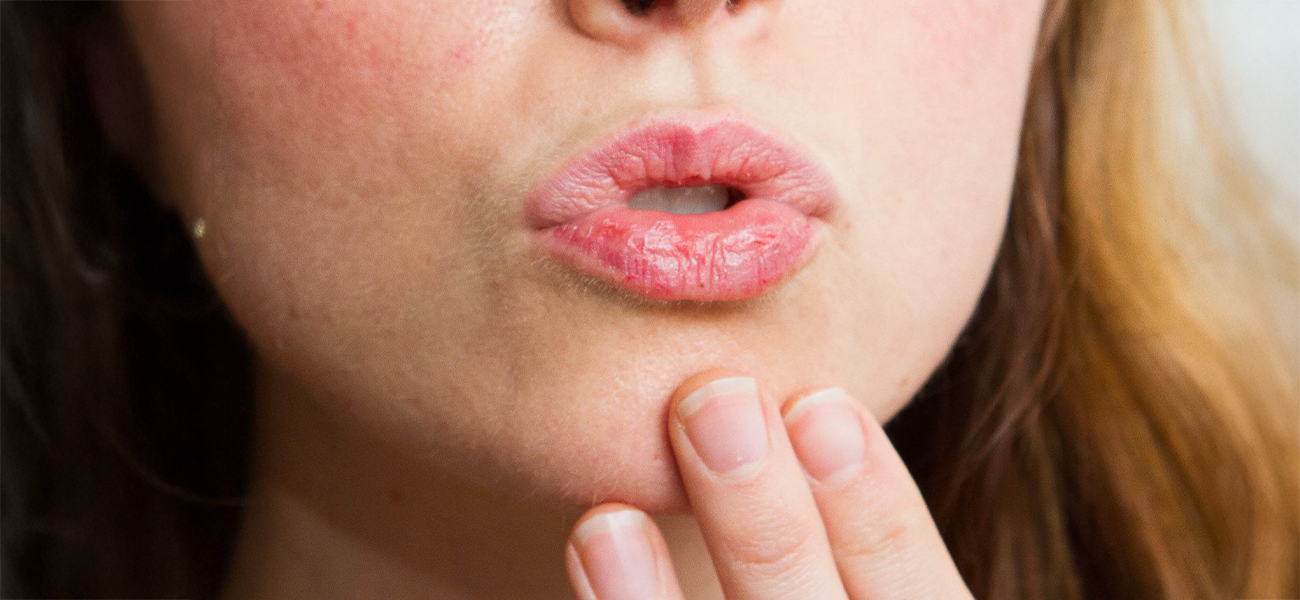Lip Cancer
Lip cancer is a type of skin cancer that affects the lips and can lead to serious consequences if not diagnosed early. It tends to occur more frequently on the lower lip, which is more exposed to the sun. Often, its symptoms are mistaken for simple skin problems or mouth sores. However, when detected early and treated appropriately, the disease can be effectively controlled, with a high chance of recovery.
Symptoms of Lip Cancer
Lip cancer initially manifests as small changes that may be difficult to detect. It usually begins on the skin’s surface and, if left untreated, can spread to deeper tissues and other organs. Recognizing the symptoms and being vigilant is crucial for early diagnosis. Here are the signs of lip cancer:
Persistent Sores
If you have sores on your lips that do not heal or keep recurring, it should not be ignored. Normal sores typically heal within a few days or weeks, while those caused by lip cancer often become chronic and fail to heal. These sores may be painful or painless.
Color Changes
The appearance of white or red patches on the lips can be a sign of lip cancer. These patches often have a rough texture and may expand over time. Since such color changes can be confused with other health issues, consulting a specialist if they persist is essential.
Bleeding
Frequent and unexplained bleeding from the lips can be indicative of lip cancer. If bleeding occurs without any trauma or irritation, it should not be overlooked.
Swelling or Lump
A painless swelling or lump on or around the lips could be a sign of a cancerous tumor. These swellings usually grow slowly but may become more prominent over time.
Chronic Dryness and Cracks
Persistent dryness or cracking of the lips, even with regular use of moisturizers, can also be a symptom. If constant cracking occurs, especially with other symptoms, it is important to consult a specialist.
If any of these symptoms persist for several weeks, it is necessary to see a doctor for early diagnosis. Detecting lip cancer in its early stages significantly improves the success rate of treatment.
What Causes Lip Cancer?
Several risk factors can contribute to lip cancer. A combination of environmental and genetic factors plays a role in its development. Below are the primary causes of lip cancer:
Excessive Sun Exposure
Prolonged exposure to sunlight without protection is the most common cause of lip cancer. The lower lip is particularly vulnerable to the harmful UV rays of the sun. Not using sunscreen or failing to protect the lips on sunny days increases this risk.
Use of Tobacco Products
Smoking, pipe use, and other tobacco products significantly increase the risk of lip cancer. The harmful chemicals in tobacco damage the DNA of lip cells, triggering cancer development.
Alcohol Consumption
Alcohol consumption, especially in combination with tobacco use, greatly multiplies the risk of lip cancer. Excessive alcohol consumption impairs the ability of cells to regenerate and causes damage that may lead to cancer.
Fair Skin
People with fair skin are more susceptible to the harmful effects of sunlight due to lower natural melanin levels. This increases the risk of lip cancer.
HPV Infections
Human Papillomavirus (HPV) infections have been linked to several types of cancer, including lip cancer. Certain types of HPV cause abnormal cell growth, contributing to cancer development.
Age and Gender
Lip cancer is more common in older individuals. Men are at higher risk than women, likely due to spending more time outdoors and higher rates of tobacco use.
Treatment Methods for Lip Cancer
The treatment methods for lip cancer depend on the stage, size, and spread of the cancer. Modern medical techniques provide highly effective outcomes for this disease. Here are the main treatments for lip cancer:
Surgical Intervention
Surgery is the most common treatment for lip cancer. During the procedure, the cancerous tissue is entirely removed. In advanced stages where cancer has spread to the lymph nodes, these nodes may also need to be removed.
Radiotherapy
Radiotherapy uses high-energy beams to destroy cancer cells. It is often preferred when surgery is not an option or to eliminate remaining cancer cells after surgery.
Chemotherapy
Chemotherapy is used in advanced stages when the cancer has spread to other organs. This method uses powerful drugs to kill or inhibit the growth of cancer cells.
Reconstructive Surgery
After surgical treatment, reconstructive surgery may be required to restore the lips’ aesthetic and functional aspects. This intervention helps patients recover both visually and functionally.
Preventing Lip Cancer
Although lip cancer cannot be entirely prevented, reducing risk factors and ensuring early diagnosis are possible. Here are some steps to help prevent lip cancer:
Protect Yourself from the Sun
- Use lip balms or sunscreens with SPF 30 or higher.
- Wear wide-brimmed hats to shield your lips on sunny days.
Avoid Tobacco
Quitting smoking and other tobacco products significantly reduces the risk of lip cancer.
Limit Alcohol Consumption
Reducing alcohol intake protects not only against lip cancer but also against various other types of cancer.
Schedule Regular Check-Ups
Do not neglect oral and dental health check-ups. If you notice any abnormality on your lips, consult a doctor immediately.
Keep Your Lips Moisturized
Keeping your lips hydrated helps prevent dryness and cracking, contributing to healthier lips.
Get the HPV Vaccine
The HPV vaccine protects not only against lip cancer but also against many other HPV-related cancers.
Early Detection Saves Lives
Lip cancer can be successfully treated when detected early. Therefore, it is important to take small sores or discoloration on the lips seriously.




